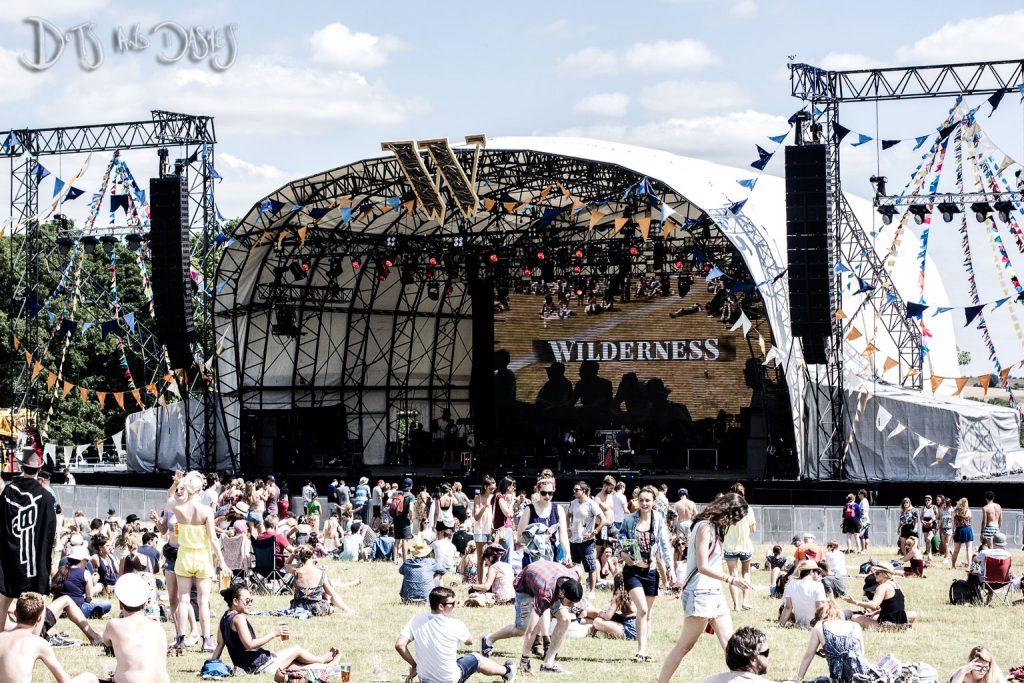For a number of reasons, Wilderness – the name by which the early August Cornbury Park bash, inaugurated in 2011 and now in its fifth year, is both known and renowned – makes for a particularly interesting bit of nomenclature: at no more than a mere hour outside of London, this decidedly civilised get-together is scarcely removed from civilisation as we know, and often loathe it. Nevertheless, Wilderness is as much an unpredictably wild one in nature as it is in name; for although there may be Made in Chelsea-on-the-cheap(er) moments aplenty, with the weekend making last month’s Latitude out to look like the proletariat’s (Tetley’s) tea party, perhaps improbably, debauchery abounds. Whether this makes itself manifest in the wide-eyed twenty-somethings dabbing nonspecific powders and dabbling in piperidine derivatives down in ‘The Hidden Valley’ come sundown, or those splayed out prostrate in a comatose state beside the banks of a glistering reservoir, sweating out steak after steak, hedonists can quite incontrovertibly both have their cake and eat it – both figuratively and literally – here.
Sure: rarely has the middle-classism to predominate the British summer festival circuit these days seemed quite so apparent, nor apparently chasmic in its various divisions. And as such, Las Vegan hip house guru Shamir appears a complete pariah: identifying as “genderless”, and generating the sort of auricular provocation that’s surely more likely to frighten than thrill the well-to-do, he stands out. But to those stood before the Main Stage on Friday afternoon, Shamir Bailey does so for all the right sorts of reasons, the dippy undulations of Vegas and the call-and-response pep-us-ups of Call It Off fucking supreme.

His nails painted electric yellow and knees duly muddied, Bailey looks – and for that matter, sounds – every bit a festival mainstay-in-waiting, doling out free hugs long after his allotted stage time has elapsed. He’ll later pose – and pose superbly, at that – for endless photos, achieving ultimate endearment and coming to represent the king, or queen(, or whatever the “genderless” alternative may be) of the self-styled selfie era. And so, although he comports himself with all the deficient conviction of a backgrounded backing singer onstage, he really needn’t; for this is one American making a scene that truly needs to be seen to be believed…
“Wilderness is quite experimental,” says one of umpteen particularly eloquent passers-by; one who’s incidentally neglected to get himself over to Shamir moments before. “It’s quite wacky,” he continues; “there’s loads of weird stuff.” Bailey inevitably slots into this exact bracket, as do so many of the substances to have been slotted into all sorts of nooks, crannies, wallets, socks and pockets upon entrance to the event; but Wilderness’ real success essentially stems from its compiling many of the better bits of many another festival, condensing these down into an eminently manoeuvrable site that’s sightly as an Oxfordshirian Shangri-La: the arena-less-ness of Glastonbury combines with the ability to swim the lake of Latitude (along with many another aestival lounge-about) and the ‘foodiness’ of the nearby Big Feastival, to create something that’s both laid-back and brilliantly engaging.
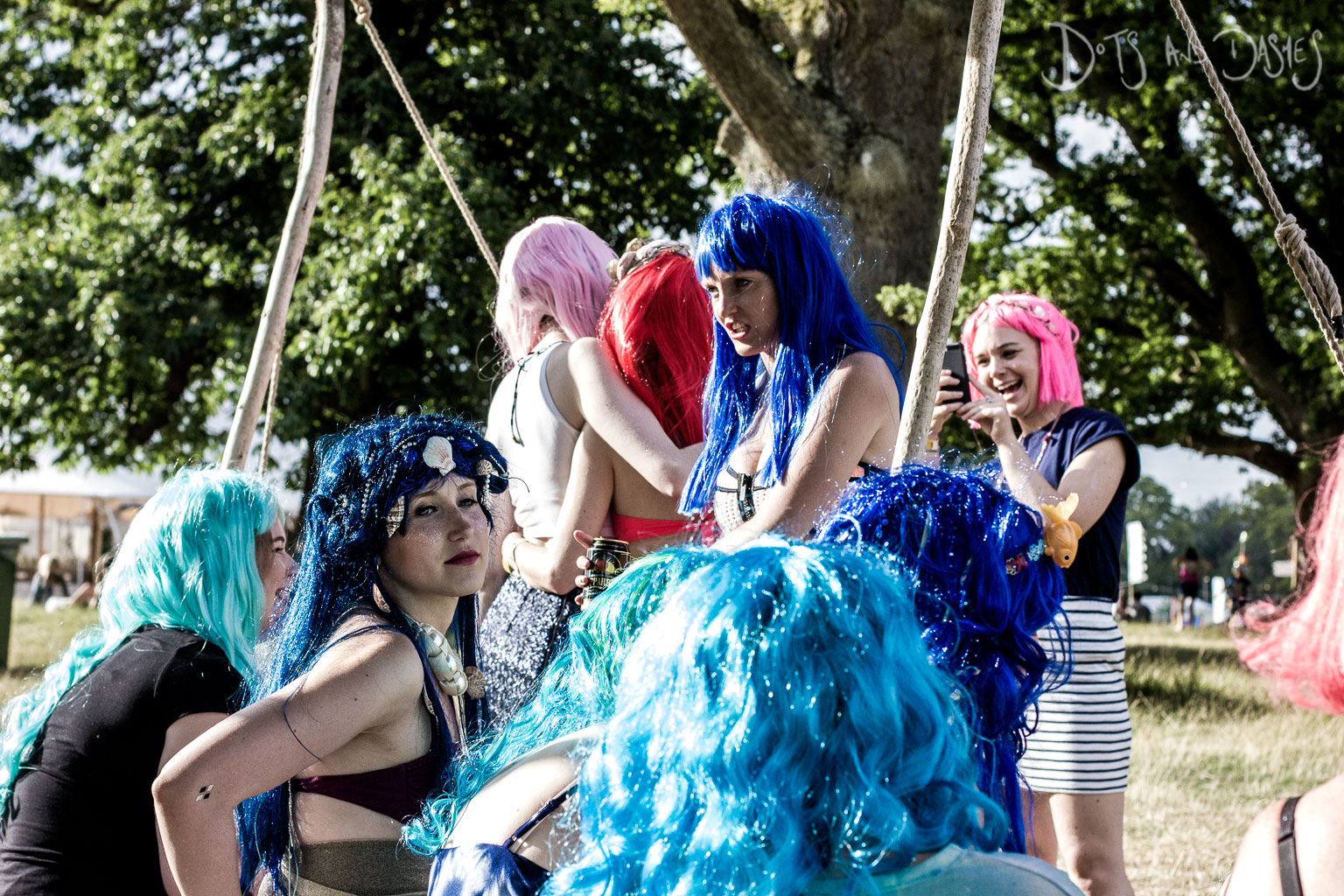
And that lattermost adjective is surpassingly applicable to Bergen siren AURORA: sniffly and slightly hay feverish, her (rather enervatingly protracted) soundcheck comprises a meek, when not mawkish, and always dorky rendition of Singin’ In the Rain, “or something like that.” Nonetheless, once things get going in earnest, hers is a show of such momentousness that it belies her scanty years: interwoven into wonderfully resonant musical accompaniments, Aksnes sings of taking tentative glimpses “on[to] the other side,” our eyes in turn opened via our ears. For this is the sort of weekend during which perceptions, possible misconceptions and so on are irrevocably altered, as you start to see things in entirely different lights, darks and shades. “I’ll be fine, I’ll be fine/ On the other side” Aurora reassures, her almost tangibly frangible warble once more belying her words. But on a day, or perhaps rather a night presided over by Scandinavian maidens peddling vitalistic, introspective musics, it seems almost as though there is some concerted subliminal messaging going on; that organisers were wanting to provide very different perspectives via every medium available to them. Many disparate artistic disciplines, as well as walks of life, at last collide, with the well-to-do entertained not by their peers for the most part, but rather by the great and the good. As for Aksnes, she may not look it, her diminutive stature not exactly that of a so-called “warrior,” although stood not behind, but atop a fortress of formidable, glacial force musical, there is both weight and worth to her every move. A commanding presence she thus becomes; so much so that, by the time she reveals her true relevance – as a soi-disant “warrior of love” – resistance is futile, such is her irrefutably Venusian allure.
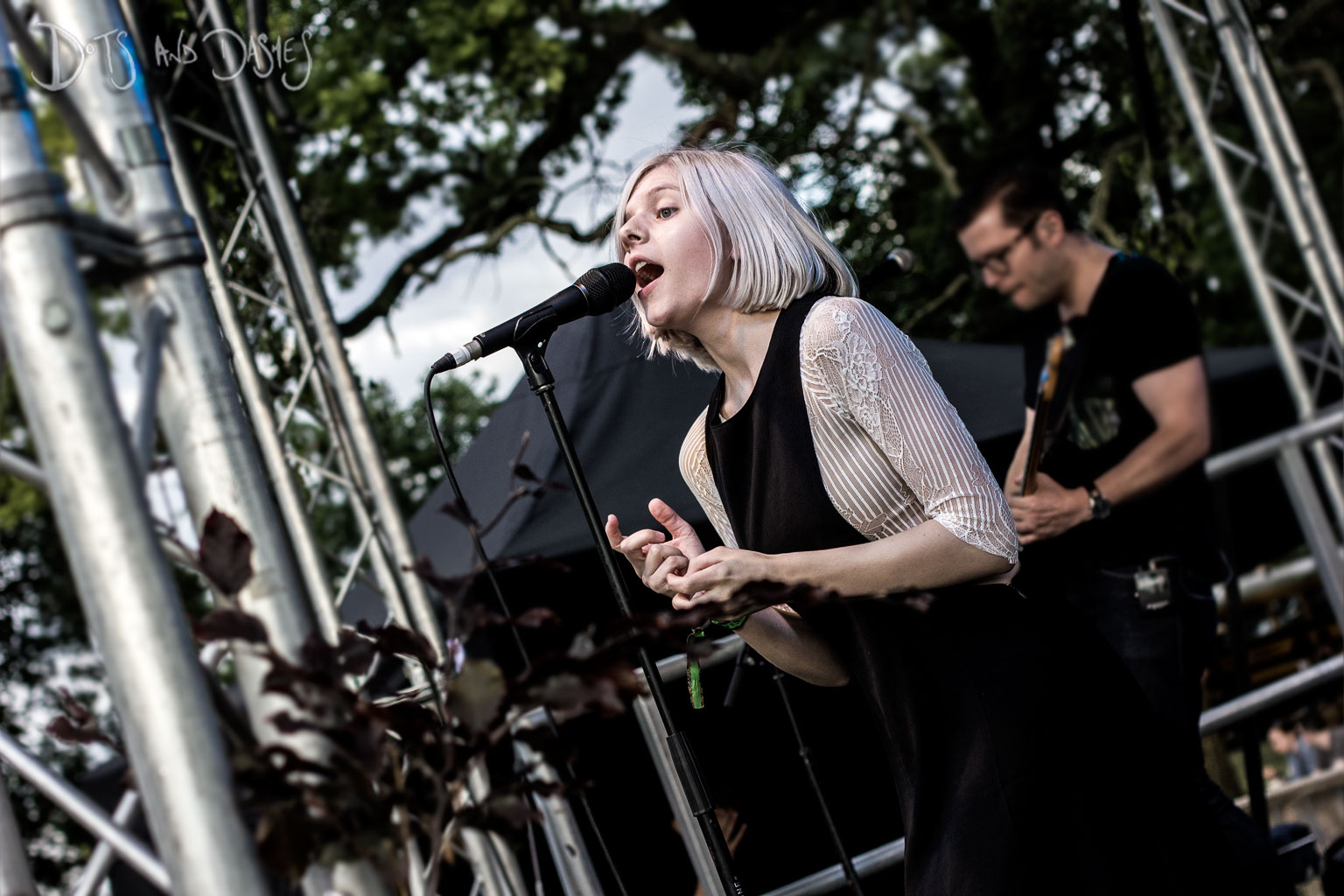
This isn’t true of her at all times, mind: during the ineluctable breaks between one song and the next, Aurora seems borderline embarrassed at the embarrassment of aural riches that she already has at her disposal. Few can be more compelling than Runaway though, during which she’ll repeatedly lament: “Now, take me home/ Take me home where I belong/ I got no other place to go/ Now, take me home/ Take me home where I belong/ I can’t take it any more.” Her outsider status directly addressed and reasserted, this may be quintessential major label vernacular, yet there is none of that same dead-eyed vacuity by which such dim (and by and large, dimwitted) stars are so often defined. “It’s so cool you know the songs!” she then coos in the wake of this rousing triumph, her wan features coloured by genuine joy and growing confidence likewise. But so deferential a confession at once puts her in the starkest of contrasts once more with the hyper-tanned hides of those sprawled out before her, shedding light on a quite grotesque standoff between creative incertitudes and baseless, blasé entitlement. There are those moments – such as during the otherwise enlightening Awakening – at which Canary Wharf-ish guff blathered on about between untimely puffs on Camel Blues dwarfs Aurora’s plaintive wailing, half-baked waffle concerning tardy “gap yahs” spent trekking the Andes diminishing the Norwegian’s impact at times.
With her shoes already disposed thereof, as though attempting to cleanse herself of such idle prattle or rid a pestilent itch, socks and tights soon follow, thrown onto the floor underfoot. Indeed, when she later sings of “wash[ing] away the sin,” you can almost feel her palpable need for necessary expunction. This too relays a sense of irrepressible humility; the sort that the lyric, “The stars were brightly shining/ When she reached out, they were gone” (Awakening) conveys, perhaps implicitly suggesting Aksnes is totally aware of the pitfalls that could so easily befall the fast-ascending pop star on the ongoing “journey [that she’s so visibly] determined to complete.” As such, bigger – and for that matter better, more attentive – audiences doubtless now await, with this never more evident than during a climactic take on In Boxes, during which the atmosphere surrounding The Bandstand is transformed from late-afternoon lethargy to full-blown Scandi dance party in seconds.
There is then more chin stroking than toe tapping, as Nils Frahm brings together the irregularly associated Steinway and Adidas three-stripe forms. And, on a stage evocative of that which once graced The Big Chill – a festival that shared a not insubstantial level of commonality with this one – the Berlin wunderkind brings some big, chilled feels to proceedings. His pained expression at odds with the apathetic toing and froing of bunting in a light breeze overhead, disregarding the placidity of his compositional expressionism, there is a strange displacement of movement; a disconnect between artist and audience, if you will. Which is made all the more discombobulating, by the fact that he plays with his back to us, thus ensuring we’re able to observe his every move as one: every bit of twinkling tinkering; every punctiliously triggered arpeggio; every perfectly timed drop. Those irresistible releases, as well as the inevitable endings…
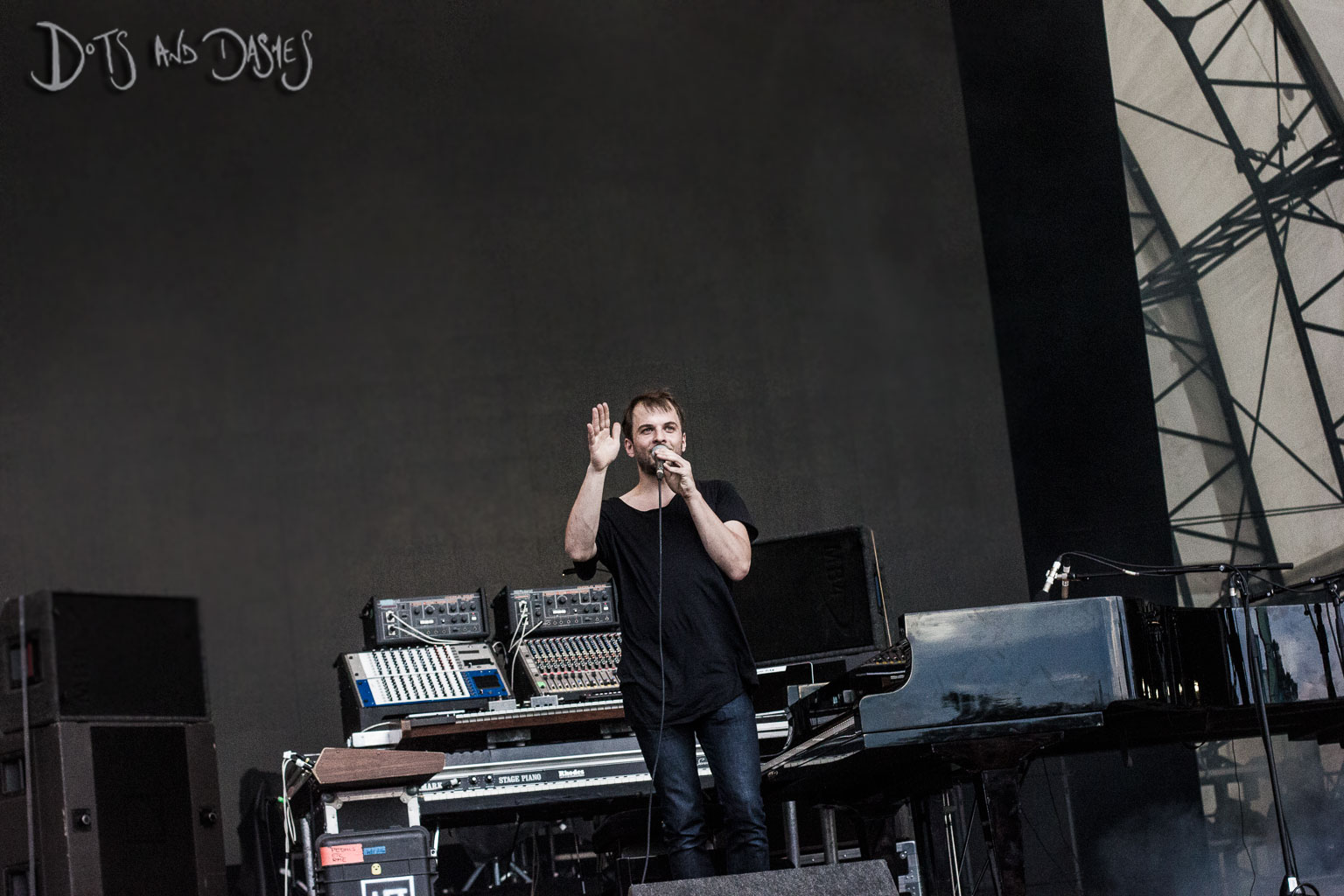
There are those instances at which Frahm opts for entry-level house, yet before it starts to really bomb, he brings things right back up with some more elite virtuosity. Nevertheless, this is a set that, for one reason or another, rarely really works; a requisite equilibrium is never struck, while his thanking “Latitude”, rather than Wilderness, unsurprisingly does him precious few favours. But when the music, and this most precious music alone is allowed to do all of the talking – as it does during a surging, gorgeous Says – Frahm can still better articulate his thoughts and feelings in exclusively instrumental formatting than anybody. In fact, he’s possibly the only living being – and the first since Ludwig van Beethoven – who can keep time better than a metronome. That said, what with this being “a last show in the UK for quite a long time,” he too runs over his allotted stage time, a scintillating For – Peter – Toilet Brushes – More rounding things off in fantastic style; a term that, alas, refers to Frahm all too infrequently this time around.
Much like I manage to avoid all yoga-shaped activity throughout the weekend, Icelandic demigoddess Björk subsequently neglects Joga, along with many another greater hit, in favour of material taken from the heartbroken Vulnicura release of last January. Of course, for Wilderness to have secured Björk – not least in light of recent cancellations, with this being her final EU show for the foreseeable future – is quite the coup; the kind that could only ever have come to fruition in MAMA & Company’s wildest dreams. (Dreams which have been newly bought out, and bought outright, by the multinational conglomerate, Live Nation.) But much like Frahm before her – and, to a lesser extent, Wilderness itself – Björk’s is a show of stark contrasts: the vulnerable, beautiful chastity of her latest full-length, for instance, is offset by the presence of Bobby Krlic (probably best known as chthonic techno savant, The Haxan Cloak).
Björk herself, in relatively quiet attire by her own garish standards, stomps about the stage in several-inch styrofoam platform shoes, a gossamer-like mask that looks not unlike the sort of lattice which dear Raymond Blanc may deploy as and whenever embellishing a particularly intricate pudding, and a pink dress decorated with a splurge of gunk resembling the discharge from an idle glue gun, which covers her abdominal bits and bobs. Similarly ejaculatory fireworks flare up both onstage and off of it, lending a prematurely triumphant feel to the evening; the kind that is at least partly, yet probably completely in conflict with the subdued, damaged nature of Vulnicura.
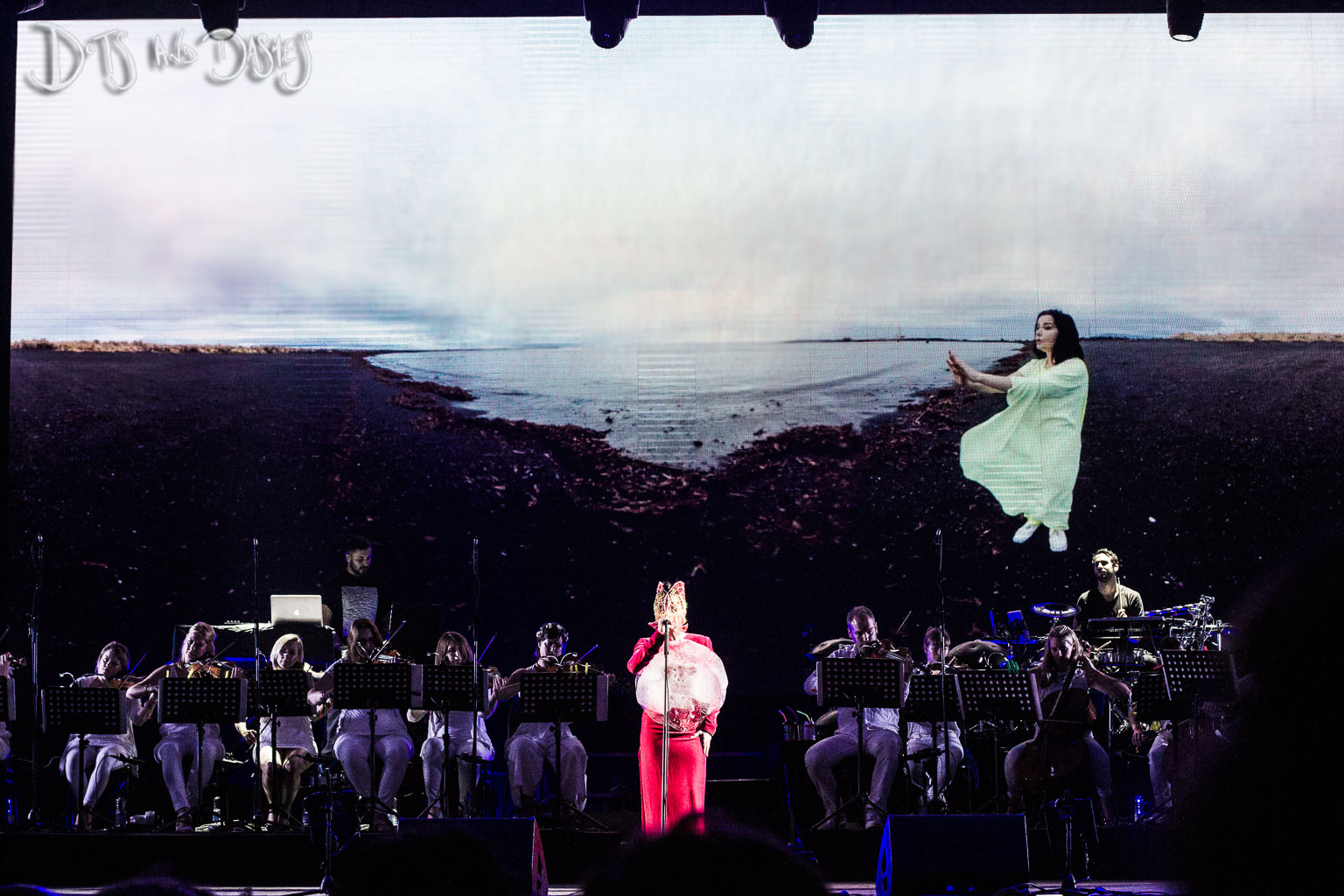
Across the screen beyond, a young(er, for will Björk ever really age?) figure tiptoes across the sort of irredeemably bleak hinterland that the disquieting likes of Black Lake, Family and the opening Notget occupy auricularly speaking, imbuing the night with a more human, or rather humane touch. With that said, many seem incapable of connecting with the show on that more human level: there is so much to be said for this being the one and only date to have survived her recent culling of all live performances, given that bucolic Oxfordshire is exactly the sort of place – with Wilderness the perfect space – where her voicing consternation and perturbation could, hypothetically, be heard loudest and clearest atop the distant hiss of an army of AGA cookers. There is thus the feeling that, although this is Björk baring her soul where so many others choose to conceal and shield theirs, her traumas go unnoticed, or are exposed to the wrong audience; one made up more of the curious rather than curiosi; or more simply, one that is, ultimately, not her own. Her opting to mask herself, rendering her every expression invisible, suggests a tacit hesitancy to reveal any more than she already has done in song form, while the fresh-faced avatar in refreshing green wandering beyond her more verisimilarly conveys the dismay made immortal in Vulnicura. In short, those same “mutual coordinates” cited during a devastating take on Stonemilker are never really achieved in any way, shape or form…
And so, essentially, Björk can be said to transparently resemble a shadow of her former self: she drifts into, and swiftly fades out of, certain tracks, thus becoming more of a quiet director than a key player. Corporeal beats, full of body, combine with the strings of the Heritage Orchestra to contrive a sound that, at times, provides the consummate marriage of organic and electronic components. But, in spite of her “cheers[ing] England,” all too often, it’s all too alienating a performance to resonate in all of the many, multifarious ways it really ought to. As such, as per AURORA before her, Björk comes to resemble a Venusian being; just in a less complimentary, or congratulatory sense when compared with Aksnes. Her distancing herself from her discography, when headlining a festival of this sort, seems a misjudged decision also, with Post cuts such as Army of Me and Hyperballad rare moments of rarefied delight.
But it’s difficult to dispel the nagging notion that this particular show essentially has more to do with observation than exoteric enjoyment: whereas Biophilia witnessed Björk dissecting nature, as well as man’s gradual destruction of Planet Earth, Vulnicura makes for a more introspective, personal affair; an opportunity for her to examine the severing of her onetime emotional attachment to quondam hubby Matthew Barney under her very own proverbial microscope. With a microphone now in hand however, and with a slightly longer gestation period having passed since its release, the album – and our attitude towards it – has evolved as bacteria might on a Petri dish, becoming that bit more personal still, while losing some of its incontestably instant personability. Björk has herself become the specimen under examination, therefore; the personification of human heartbreak that, if purveyed in its purest of forms at times, is shown at its most platitudinous at others. She is thus a specimen, or indeed a product, of her own predicament; the kind to which we can all relate, yet can’t really tonight…
She flails like a limp fish throughout, this a most flaky specimen in every sense of the word; a pun that’s perhaps that bit too close to the proverbial bone, but still: this should have been an altogether more limpid performance than that to which we’re treated. Thus a core question is this: are we witnessing self-empowerment in the aftermath of personal tragedy, or self-implosion in a tragically public arena? It’s the kind of question that no deluxe, double heavyweight vinyl reissue – no matter the colour – can necessarily answer, nor one that is directly responded to tonight. Because if Björk continues to carry the look of a woman possessed, she doesn’t seem as she once did; she looks to have been possessed by something (or perhaps someone) else entirely.
By virtue of all this, it’s a concertedly difficult show; the sort that isn’t seen all too often, not least in OX7. But it’s less her butterfly-like flourishing, and more the latest stage in a ceaseless transformation; one in which each and every evolution proves revolutionary; and with that, a vivid reminder that Björk is the embodiment of art in its purist, most refined form. And no matter the forces that might conspire to impurify, or putrefy this – whether they be Barney; or tonight’s less-than-responsive, nor even receptive audience; or the compulsion to recommence writing – this will seemingly always be the way. Yes, sure: for one reason or another – of which there are very evidently many – this is not the unifying experience that so many festival headliners strive to provide; conversely, Björk proffers the opportunity to indulge in a period of intense reflection, introspection and esotericism tonight. It’s more a conflicted, than a typically conflictual performance therefore, with her “long, slow, quiet songs” falling largely on deaf, rather than deafened ears. Nonetheless, as a declaration of her artistic integrity and personal independence, it’s a quintessentially bold statement from the po-mo megastar regardless…
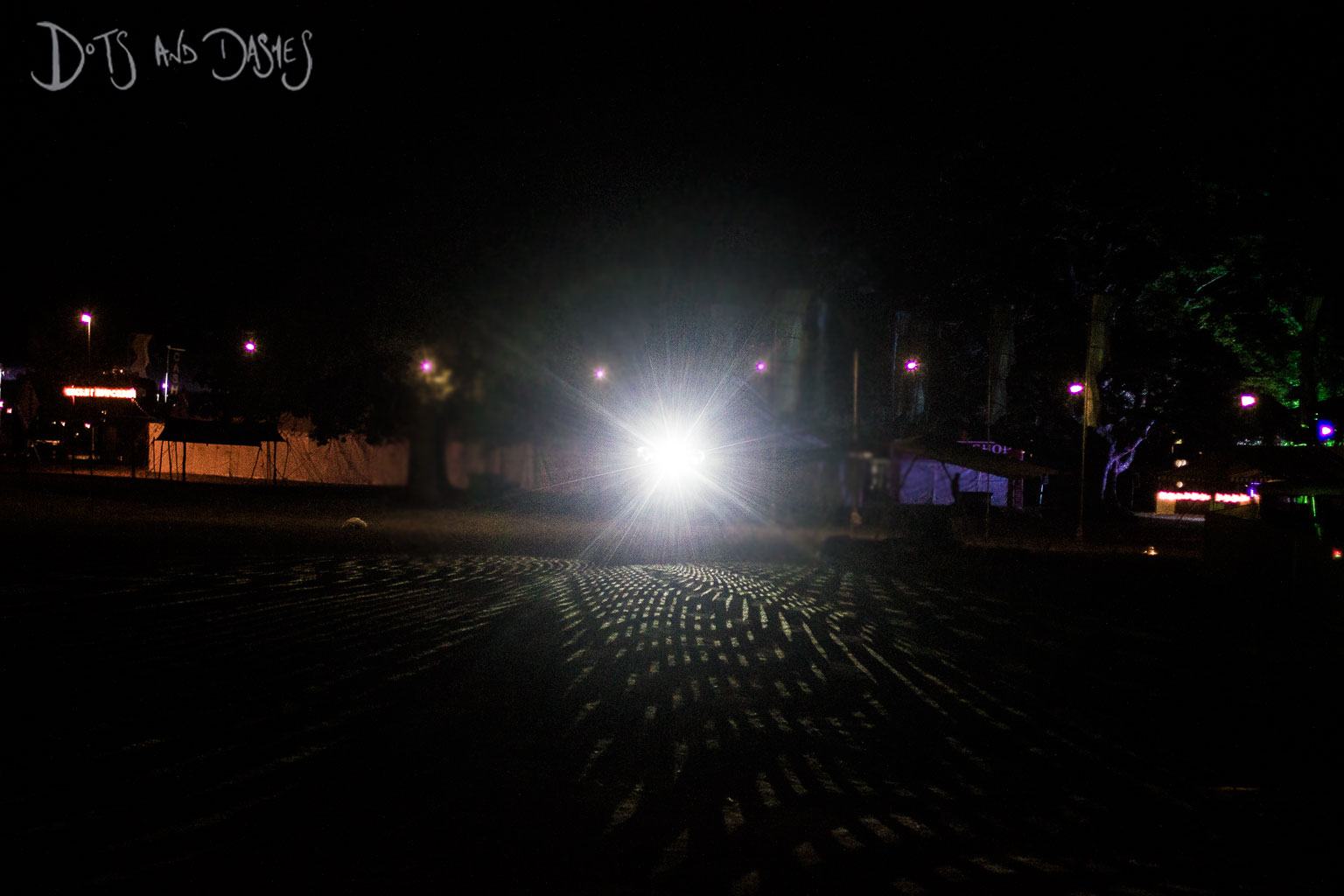
Bringing some “techno-disco-house-boogie” to what Andy Butler – “the tacky American” – considers little more than a “little picnic” come Saturday afternoon, Hercules & Love Affair may be lacking the guests that have made their back catalogue quite so colourful – their set ergo lacking somewhat – but abetted by both Gustaph and Rouge Mary, on turns such as Do You Feel The Same? and 5:43 To Freedom, the troupe put together a performance which perfectly epitomises the irrefutable frivolity of any which festival. The latter track, led by the ebullient Mary, may be shamelessly reminiscent of The Original’s I Luv U Baby, yet it’s as eminently ‘luvable’ as its vocalist’s proclamations (“Do whatever you feel, as long as you’re not hurting anyone; [be] free to be yourself, no matter how weird it is [sic]”) and pleas to “embrace yourselves.” And with the likes of I Try To Talk To You, My House, You Belong and last, but by no means least, Blind in their arsenal, the “band” were always likely to be embraced by the masses. Because ultimately, where Hercules & Love Affair differ from many of their “techno-disco-house-boogie” contemporaries is in their reciting songs relatively ‘live’ so to speak, in the liveliest manner imaginable. Additionally, as Butler admits, we “love dance music in [our] culture, thank motherfuckin’ God”, and were thus always likely to react to such tracks rapturously; but “keep[ing] the spirit positive,” and all the more so than previously anticipated, come Blind, nobody bats an eyelid when Antony again fails to show.
For if Hegarty has previous with seemingly half of this year’s musical performers, and incidentally headlined the inaugural Wilderness himself, his absence is to be bewailed this weekend. One source of such lamentation, meanwhile, is similarly absent: for with there only really being the one stage that’s worth the time of day; one which, by night, no longer functions, there are no clashes to agonise thereover whatsoever. This means that one must, intermittently, suffer the rougher stuff, such as Caravan Palace – or “Caravan Palais”, or however poncily it’s otherwise supposed to be pronounced – whose whole shtick is drastically undermined by their lack of a live drummer.
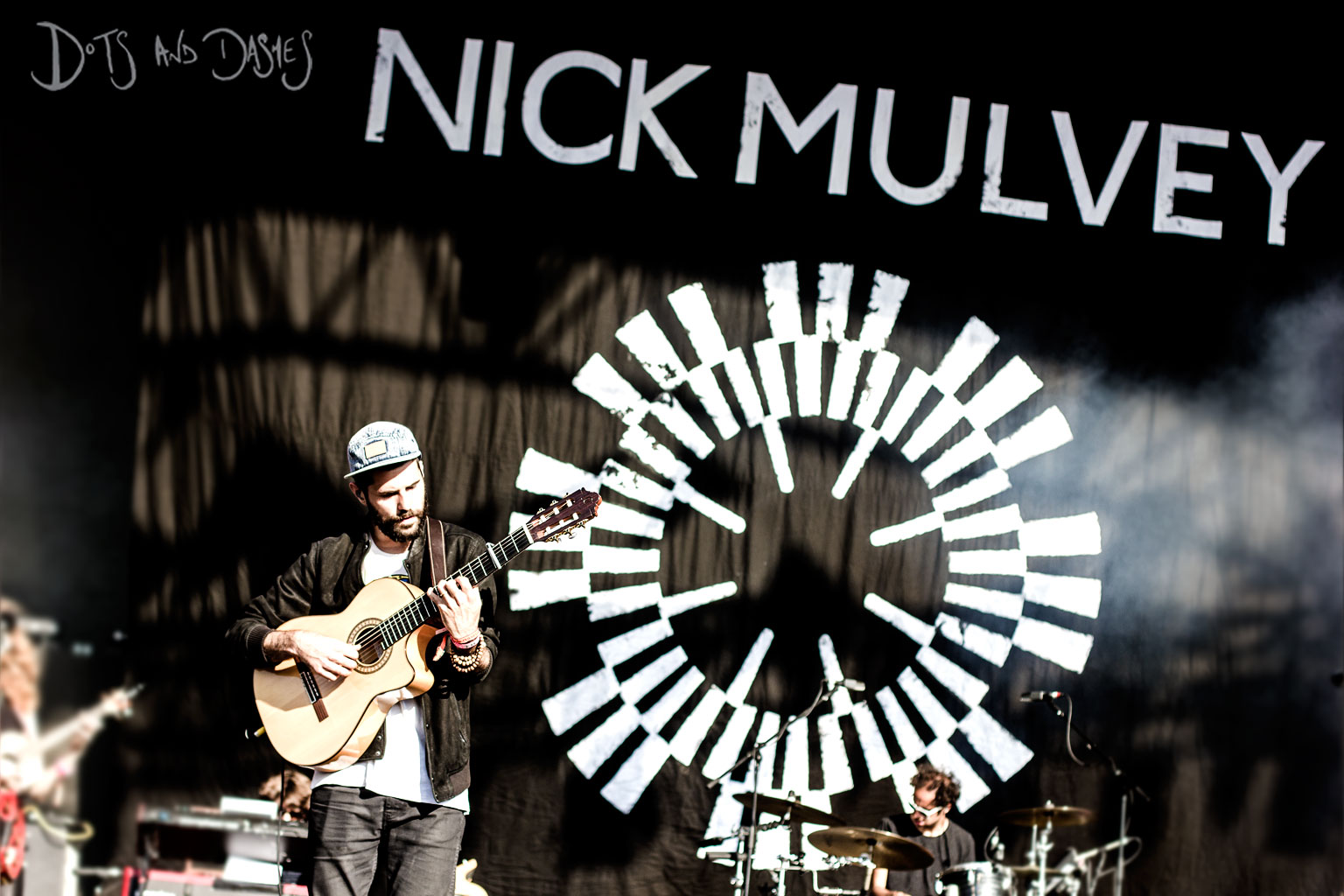
Elsewhere, having once gone it alone entirely, Nick Mulvey – more commonly associated with Cambridgeshire than Oxfordshire, of course – has stepped things up onstage, to the extent that he now exemplifies the most indispensable cog in a slick, diligently oiled hit machine: from the ambidextrously fingerpicked April, to the lilting, slightly lugubrious Fever To the Form, to his vaunting the jaunty, virtuosic Juramidam, this particular live incarnation has really clicked at last. Trebly uke strums add tremendous depth to Meet Me There, while a(n admittedly, mildly ill-judged) rendition of Björk’s Bachelorette showcases the sumptuous talents of a lone cellist stage-left. Nitrous is as well suited to Wilderness’ Main Stage as the stuff whence its title comes befits ‘The Hidden Valley’, whilst an ever-breathtaking take on the DH Lawrence-purloining Cucurucu works similar wonders. “Fuck yeah!” Nick mouths, albeit when away from his microphone, in a rare display of a character that’s as tenable as his worldly recordings; recordings which are now quite rightly revered both far and wide, if not worldwide.
Moments later, there seems a deep-seated irony in Róisín Murphy’s reminiscing about times “when people could really write songs”, given the masterclass that Mulvey’s just delivered. Thus as the erstwhile Moloko vocalist implores we “remember the glory days” in dour tones and drab brown, she could do with practising that which she preaches, Familiar Feeling infinitely preferable to the preceding, inexplicably decelerated and unnecessarily slow rendition of David Morales collaboration, Golden Era. Continuing to extol halcyon “heyday[s]”, she continues, recalling times at which “ladies dressed like ladies and gentlemen dressed like gentlemen.” As for Murphy, well, she looks more like a covert ’60s detective than a “lady” per se, strutting her stuff in a dreary trench coat and carting a clunky leather holdall about the place. “All we have is now” she then decrees, and yet in spite of May’s Hairless Toys comprising some of her bleepier and bloopier, but above all better tracks of recent times, rarely do bits and bodily pieces stand on end this evening. Which brings us to the rather lukewarm conclusion of twenty-four hours which, otherwise, were both as relaxing and cockle-warming as a stint in one of Bathing under the Sky’s numerous wooden hot tubs down in The Lakeside Spa.
